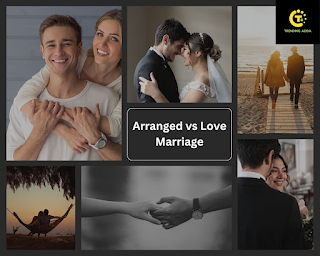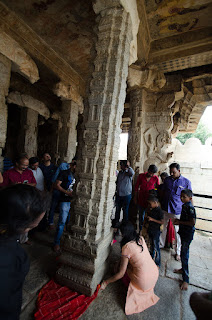Love Marriage vs Arranged Marriage
In the intricate tapestry of human relationships, the question of whether to Love Marriage vs Arranged Marriage has long been a subject of fascination and contemplation.
This article delves deep into the heart of this matter, exploring the nuances, advantages, and challenges posed by both love and arranged marriages. As we navigate through these contrasting paths, it becomes evident that each holds a unique place in society, embodying distinct values, traditions, and dynamics.
Understanding Love Marriage
Love, often referred to as the most profound and inexplicable emotion, takes center stage in a love marriage. This type of union blossoms from a foundation of shared feelings, mutual understanding, and genuine affection between two individuals. In a love marriage, the couple typically embarks on their journey after having ample time to explore their compatibility, interests, and goals together.
Advantages of Love Marriage
Emotional Bonding: Love marriages are built upon a deep emotional connection, fostering understanding and empathy that can weather the storms of life.
Mutual Compatibility: Since the partners are already acquainted, love marriages tend to have a higher degree of compatibility, reducing the likelihood of major conflicts.
Personal Choice: Individuals have the liberty to choose their life partner based on their preferences, aspirations, and shared values.
Challenges of Love Marriage
Social Acceptance: In some societies, love marriages still face resistance due to cultural norms and traditions that favor arranged marriages.
Expectations and Adjustments: Couples might encounter challenges in aligning their expectations and making necessary adjustments as they journey through life together.
Exploring Arranged Marriage
Arranged marriages, on the other hand, stem from the cultural and familial values that prioritize harmonious unions orchestrated by families and matchmakers. In such marriages, the couple's families play a pivotal role in the selection process, considering factors such as caste, religion, socioeconomic status, and family background.
Advantages of Arranged Marriage
Family Support: Arranged marriages often benefit from the strong support system provided by both families, creating a network of assistance during challenges.
Cultural Continuity: These marriages contribute to the preservation of cultural traditions and practices that have been passed down through generations.
Long-Term Vision: Families carefully evaluate compatibility and shared values, aiming for a lasting relationship that goes beyond immediate emotions.
Challenges of Arranged Marriage
Initial Adjustment: Couples in arranged marriages may take time to understand each other's personalities and adapt to their new life.
Emotional Bonding: Building a deep emotional connection might take longer in arranged marriages, as individuals start their journey with limited prior interaction.
The Diverse Tapestry of Choice
In the tapestry of love marriage vs. arranged marriage, it's crucial to recognize that each individual's journey is unique. Some might find their soulmate in the arms of love, while others discover a fulfilling partnership through arranged means. The choice between the two isn't about determining a single superior path, but rather understanding which path aligns better with one's values, aspirations, and circumstances.
The Ultimate Decision: Yours to Make
In the end, the decision to choose between love and arranged marriage rests solely with the individuals involved. Each path offers its own set of challenges and rewards, and there is no one-size-fits-all answer. The key is to embark on this transformative journey with an open heart, clear communication, and a willingness to grow alongside your chosen partner.




Comments
Post a Comment